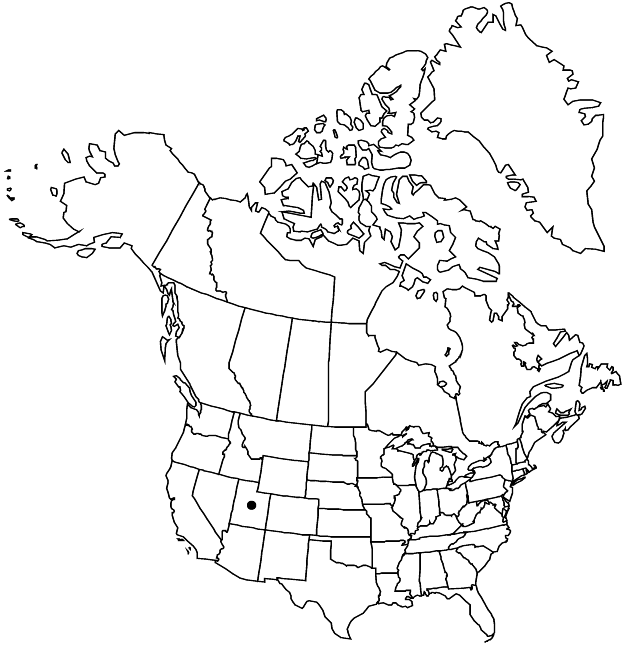Difference between revisions of "Eriogonum viridulum"
Proc. Utah Acad. Sci. 42: 287. 1966.
FNA>Volume Importer |
imported>Volume Importer |
||
| (One intermediate revision by one other user not shown) | |||
| Line 8: | Line 8: | ||
}} | }} | ||
|common_names=Clay hill wild buckwheat | |common_names=Clay hill wild buckwheat | ||
| + | |special_status={{Treatment/ID/Special_status | ||
| + | |code=E | ||
| + | |label=Endemic | ||
| + | }} | ||
|basionyms= | |basionyms= | ||
|synonyms={{Treatment/ID/Synonym | |synonyms={{Treatment/ID/Synonym | ||
| Line 50: | Line 54: | ||
|publication title=Proc. Utah Acad. Sci. | |publication title=Proc. Utah Acad. Sci. | ||
|publication year=1966 | |publication year=1966 | ||
| − | |special status= | + | |special status=Endemic |
| − | |source xml=https:// | + | |source xml=https://bitbucket.org/aafc-mbb/fna-data-curation/src/2e0870ddd59836b60bcf96646a41e87ea5a5943a/coarse_grained_fna_xml/V5/V5_508.xml |
|subfamily=Polygonaceae subfam. Eriogonoideae | |subfamily=Polygonaceae subfam. Eriogonoideae | ||
|genus=Eriogonum | |genus=Eriogonum | ||
Latest revision as of 22:11, 5 November 2020
Herbs, spreading, not scapose, 1–3.5 × 1–4 dm, glabrous, bright green. Stems spreading, without persistent leaf bases, up to 1/5 height of plant; caudex stems absent; aerial flowering stems erect, slender, solid, not fistulose, 0.5–1.2 dm, glabrous, tomentose among leaves. Leaves sheathing 1–4(–6) cm, 1 per node; petiole 0.1–0.2 cm, tomentose or glabrous; blade linear or rarely narrowly elliptic, 1–3(–4) × 0.1–0.2(–0.5) cm, densely white-tomentose abaxially, glabrous and green adaxially, margins usually tightly revolute. Inflorescences cymose, 3–15 × 2–10 cm; branches dichotomous, glabrous; bracts 3, scalelike, narrowly triangular, 1–3 mm. Peduncles absent or erect, slender, 0.05–0.2 cm. Involucres 1 per node, turbinate, 2–3 × 1.5–2 mm, glabrous; teeth 5, erect, 0.5–0.8 mm. Flowers 1.5–2 mm; perianth yellow, glabrous; tepals connate proximal 1/4–1/3, slightly dimorphic, those of outer whorl ovate, 1–1.2 wide, those of inner whorl oblong, 0.7–0.8 mm wide; stamens exserted, 1.5–2 mm; filaments pilose proximally. Achenes brown, 1.5–2 mm, glabrous.
Phenology: Flowering Jul–Oct.
Habitat: Sandy or silty flats or clay slopes and hills, saltbush or sagebrush communities, pinyon-juniper woodlands
Elevation: 1400-2000(-2200) m
Discussion
Eriogonum viridulum has a distinctive upright inflorescence composed of numerous, bright green and glabrous branches bearing essentially sessile involucres. These features and the linear to narrowly elliptic leaf blades that are typically tightly revolute combine to distinguish the species from the related E. brevicaule var. brevicaule. The clay hill wild buckwheat is known only from Duchesne and Uintah counties but to be expected in adjacent Moffat County, Colorado.
Selected References
None.
